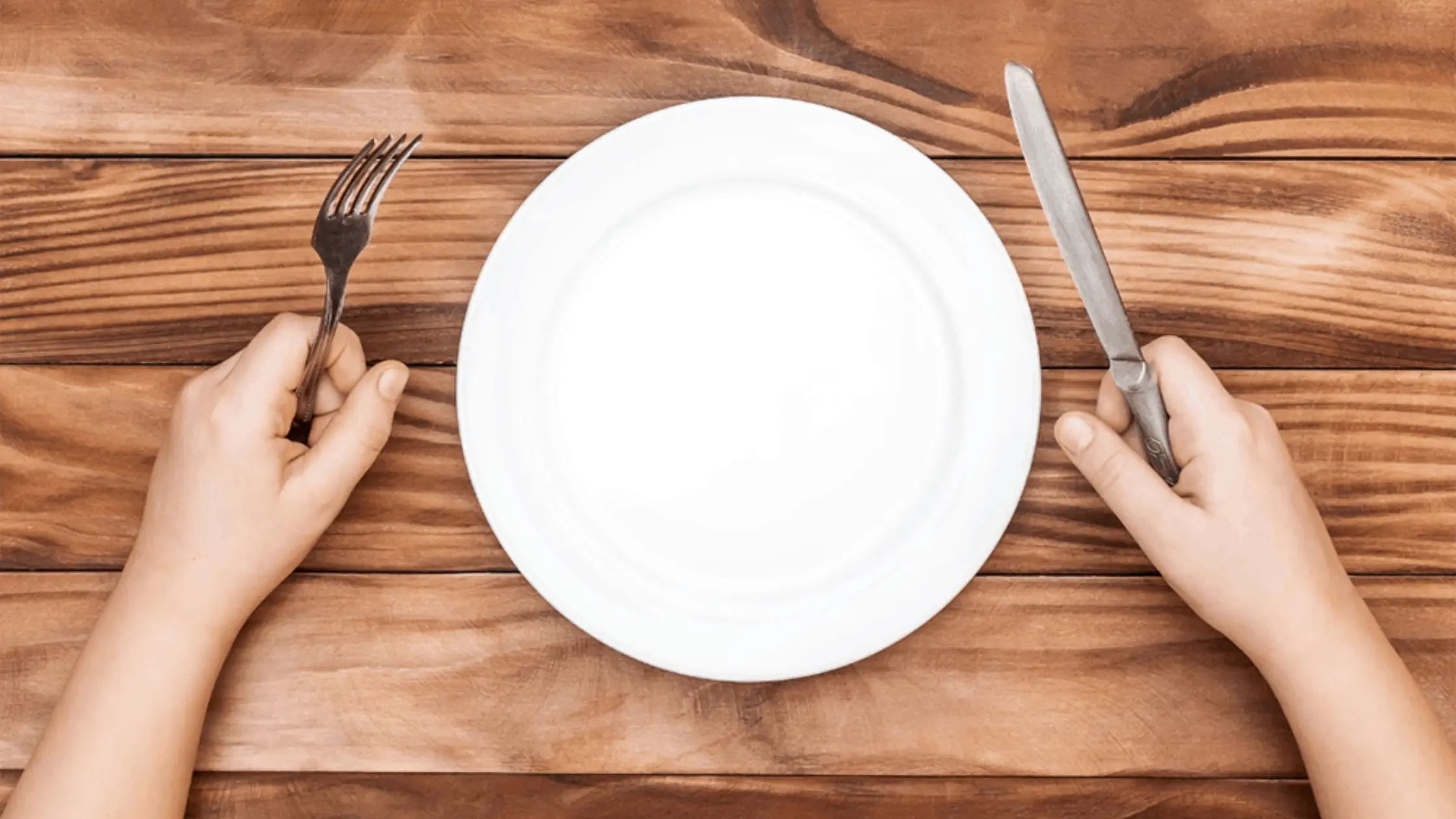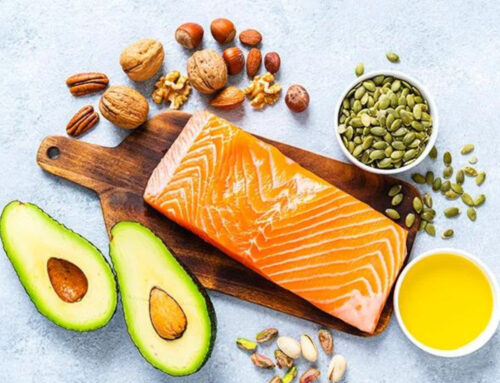Fasting refers to the deliberate abstention from food and/or fluids for a period of time, for therapeutic purposes. Many people don’t know that fasting has been used for thousands of years in various religious and spiritual practices throughout human history, and in a sense, fasting is part of everyday life. The term ‘breakfast’ is the meal that breaks the fast, which is done daily.
The recent increase in scientific research around fasting has allowed us to understand just how fasting positively affects our physiology, cells, aging, disease and overall health. What has been incredible for me to watch in my own clinic and coaching is how many people, regardless of symptoms or condition, have benefited from this completely free and simple biohack!
In 2016 Dr. Ohsumi changed the fasting landscape dramatically when he won a Nobel prize for his work on autophagy. Autophagy means “self-eating” and is the body’s way of cleaning out damaged cells in order to regenerate newer, healthier cells. Autophagy is like the fast track to healing and slowing the aging process. What does autophagy have to do with fasting? Well, fasting triggers this magical autophagy process. Essentially, fasting helps accelerate healing and gets your body to naturally repair itself!
What happens to your body when you fast?
When you don’t consume food or calories, the body looks for other ways to generate energy, such as drawing on glucose, ie. sugar stores. Once the glucose is significantly used up, the body’s metabolism changes and the body begins to burn fatty acids from stored fat for energy. When this transition to burning fat for energy is made, the body begins producing ketones and is said to be in a state of “ketosis”. You can measure your level of ketones using a Keto Mojo (more about this later).
Once you reach a state of ketosis, many of the benefits of fasting start to kick in. Now, the specific benefits can vary depending on how many hours you have been fasting. For example, growth hormones kick in at 13 hours, whereas autophagy is thought to kick in at 16-18 hours. MIT research shows that at 24 hours intestinal stem cells will begin repair and 24 hours is also when you start to see weight loss.
You can learn more about what happens to your body hour-by-hour during fasting, and download this Fasting Benefits Chart.
What are the benefits of fasting?
Fasting can provide significant health benefits, for a variety of health issues, symptoms and conditions. Because fasting works to repair and heal on a cellular level, research suggests that it can help conditions like obesity, diabetes, sleep apnea, some types of cancer, Alzheimer’s disease, arthritis, asthma, multiple sclerosis, IBS and chronic or autoimmune conditions.
Fasting can help with the following:
- Stimulating growth hormones (a fat-burning hormone) secretion by 1300%
- Triggering autophagy, ie. cleaning up of damaged cells
- Stem cells generation
- Stabilizes blood sugar
- Immune system
- Depression and anxiety
- Detoxification
- Weight loss and improved metabolic function
- Slowing the aging process, longevity
- Helping autoimmune conditions
- Normalizing your insulin and leptin sensitivity
- Lowering blood pressure
- Thyroid conditions
- Chronic pain
- Candida, gut issues
- Gallbladder issues
- Improving biomarkers of disease
- Supporting hormones and fertility
- Menopause and perimenopause
- Normalizing ghrelin levels, aka “the hunger hormone”
- Reducing inflammation and lessen free radical damage
- Lowering triglyceride levels
- Memory function and mood
- Boosting brain power by stimulating BDNF (a brain-boosting hormone) by 400%
- Supporting the treatment and prevention of cancer
The 7 Different Types of Fasting
There are 7 different types of fasting that I work on with my clients and teach in my Reset Academy. Each of the 7 different types of fasts have slightly different benefits and parameters on how they work. So if you’re wondering how long you should fast, the answer is it will depend on what benefit you are trying to achieve and which fast you pick.
- Intermittent Fasting. Intermittent fasting (IF) is the deliberate cycling between periods of fasting and eating. Most people already fast an average of 12 hours a day, that’s from dinner to breakfast the next morning (ie. mostly while you’re sleeping). With IF, what you will want to do is extend your breakfast slightly, starting one hour at a time, till you are fasting about 13-15 hours. The easiest way to do this is pushing breakfast back a couple of hours or skipping breakfast entirely and breaking your fast with lunch. There are so many benefits to IF and it’s something that I recommend clients do every day (yes, every day). The New England Journal of Medicine (NEJM) published a great review article discussing the benefits of intermittent fasting and how time-restricted eating contributes to healthy living.
- Autophagy Fasting. Naomi Whittel in her book Glow 15 talks about autophagy fasting. Autophagy fasting entails 16-18 hours of fasting (this is considered the “sweet spot”). There are some additional key principles here you’ll want to follow. When you break your fast, you’ll break it with healthy fats. This helps keep your blood sugar stable and curbs hunger, allowing you to go another 3-4 hours without eating. You’ll keep carbs under 50g and protein under 20g (animal or plant). Naomi Whittel also recommends eating carbs later in the day. Autophagy fasting is great for a lot of people, here is more information on what it is and why you should try it.
- Dinner-to-Dinner. Once you’re comfortable with intermittent fasting, dinner-to-dinner is a great type of fast to try 1-2 days a week. This means fasting from after dinner until the next day’s dinner. Drinking water and maybe coffee during this fast is okay. Dr. Fung, the author of The Obesity Code, calls this “OMAD”, or one meal a day. What’s important to remember here is that the longer you fast, the more the body will reach into your stored areas of fat to burn fuel and the more ketones your body will create.
- Dry Fasting. Unlike the other fasts, during a dry fast you’ll also abstain from drinking any water or liquids. There are a lot of reasons why dry fasting is great. Research shows us it can decrease inflammation and increase BDNF. BDNF is fertilizer for your brain. Incorporating dry fasting into your weekly diet variation, for those of you that want better brain clarity, improved memory, and better mobility, this would be the one you would do. I recommend a maximum of 12-24 hours of dry fasting, however I do not recommend that you dry fast for more than 24 hours. Dry fasting is definitely for the more expert faster.
- 36-48 Water Fasting. The purpose of a 36-48 hour water fast is really to keep insulin down and go after stored sugar. One of Dr. Fung’s key strategies for releasing long-standing weight is fasting for these longer periods. If you are extremely weight loss resistant then you are going to want to implement the 36 hour fast on a weekly basis. Many of you will notice with this fast the beginning of stem cells being released. Stem cells are repair cells, so often I will have patients of mine do a 36 hour fast to heal a musculoskeletal injury. When you get to this type of longer fast, you can also start playing with cycling your fasts.
- 3-5 Day Water Fasting. The longer 3-5 day water fast does amazing things for immune and other chronic conditions. I recommend these longer fasts once a month when attempting to trigger your body’s own healing process. I personally do one of these quarterly. However be aware that this type of fast is for advanced fasters. So if you’ve mastered the other types of fasts and are ready to try a longer fast, here’s how you can prepare for a 3 day water fast.
- Fast Mimicking. The fast mimicking diet was popularized by Volter Longo and The Longevity Diet. In this study, Longo showed that limited calories and low protein also forces the body to release stem cells. I recommend fast mimicking to patients who want the benefits of a longer fast, but still want to be able to eat food. Fast mimicking is designed to attain fasting-like effects by keeping your carb, protein, and calorie intake low and your fat intake high. Fast mimicking can also be a great fast to train your body for longer fasts. If you’re curious about the fast mimicking diet, check out my Fast Mimicking Q&A
How long should you fast?
One of the questions I get asked most frequently is, “how long should I fast?” Well, that depends on what health benefits you are hoping to achieve. The longer you fast, the more the benefits add up.
However, that doesn’t necessarily mean longer is better for everyone. For example, if you’re hoping to increase ketones, a 17 hour fast may be what you need, however if you’re trying to heal a musculoskeletal injury, you’ll want to work your way up to a 72 hour fast.
Here are the benefits of fasting broken down by hours fasted:
- 13-15 Hour fast: A 13-15 hour fast is considered intermittent fasting and if you are new to fasting, this is where you’ll want to start. At 13 hours of fasting, your body will secrete growth hormone. The growth hormone assists in burning fat and slowing down the aging process. If you are looking for an anti-aging solution I recommend this level of fasting.
- 15 hours is when most people begin to create ketones. Ketones are a sign that your liver has moved burning sugar to burn fat for energy. Furthermore, ketones are neuroprotective and will go up to the brain, giving you energy and better mental clarity.
- 17-24 hour fasting offers the following benefits: cellular repair, detox, cancer prevention, gut repair, aids with anxiety and depression, and brain and memory loss.
- 17 hour fast: When you reach 17 hours without eating you will start to stimulate autophagy. What this means is the intelligence of your cells has been turned on and they are able to repair themselves. This is best for people with autoimmune conditions.
- 24 hour fast: At 24 hours, your intestinal cells reboot and GABA production occurs. GABA is the neurotransmitter known to relax our brain and help with anxiety. Our gut health is incredibly important in preventing autoimmune disorders and aiding in weight loss..
- 36 hour fast: The more you fast, the more it forces your body to burn glucose, insulin, and toxins that are stored in fat. I always say that it is better to have fat around your muscles than around your organs and this length of fast will force your body to burn stored glucose and insulin. 36-48 hour fasts is where to start to see fat loss, anti-aging, and an increase in dopamine.
- 48 hour fast: At 48 hours you begin to reset dopamine receptor sites. If you are feeling like your happiness level is not where it needs to be this is where you need to be.
- 72 hour fast: This is a 3 day fast when you feel like you just do not know what to do anymore. I have seen these fasts used for people with severe injuries and diagnoses that want to reboot their whole immune system where healing starts. At 72 hours your stem cells for the immune system are regenerating as well as stem cell production for musculoskeletal injuries.
Watch my full Youtube video to figure out which fast will work best for you, and download my fasting benefits chart that provides guidance on the benefits during each type of fast.
How to Start Fasting: 3 Steps for First Time Fasters
So you’re ready to start, the question now becomes, how do you begin fasting?
STEP 1: CREATE A FASTING WINDOW
I recommend beginner fasters start with intermittent fasting. Remember, ideally this means 13-15 hours of no food. Take a look at how long you are fasting currently, and try extending your fasting window by two hours by pushing your breakfast time back an hour and moving your dinner time up an hour earlier.
- Get a blood reader like the Keto Mojo for this step, and learn how to measure your blood sugar and ketones. You’ll take a reading right after you wake up and a second reading right before you eat your first meal. What you want to see is that blood sugar is decreasing and ketones are increasing. If this isn’t happening, you’ll want to try increasing your fasting window and also taking a closer look at your macros.
- Drinking water and maybe coffee during this fast is okay.
- Start counting your macro. I recommend using an app called the Carb Manager to do this. In this beginning phase as you’re getting used to fasting, start by decreasing carbs, like bread, pasta, fruit, cookies, etc, and stay under 50 net carbs. At the same time, work on increasing your intake of healthy fats.
STEP 2: INCREASE YOUR FASTING WINDOW TO 13-15 HOURS
Once you’re comfortably fasting 13-15 hours, you’ll want to streamline your macros a bit more. You’ll continue staying under 50 net carbs, but also under 50 net grams of protein, with 60% of your food coming from healthy fats. Drinking water and maybe coffee during this fast is okay.
Now, how do you know if you’re in nutritional ketosis and your body is beginning to secrete ketones? Your ketones should be reading at 0.5 or above. If you’re not seeing this, time and repetition is important here. Sometimes the body simply needs more time to acclimate in this step and make that conversion from sugar burning to fat burning mode. If you still find you’re having trouble getting into ketosis, you might have a congested liver.
STEP 3: INCREASE YOUR FASTING WINDOW TO over 17+ HOURS
You’ve made it to autophagy fasting! You’ll continue staying under 50 net carbs, however you will want to further reduce your net grams of protein to under 20 grams, with 60% of your food still coming from healthy fats. Drinking water and maybe coffee during this fast is okay.
After mastering autophagy fasting, you may want to move into the more advanced fasts like dinner-to-dinner, 36-48 hour or even 3-day water fast.
How to break your fast?
Depending on how long you’ve been fasting, you’ll want to make sure you break your fast, slow and easy. I recommend avoiding carbohydrates or foods that will spike insulin and blood sugar. Bone broths and high-fat foods like olives, avocado and nut butter are a great way to go. Also, you’ll want to avoid these foods during a fast as they may break your fast inadvertently.
Is there ever a time you should stop fasting? Yes! If your ketones get above 7, your blood sugar drops below 40 or you are not feeling well, you should break your fast. You can also try drinking salt water or taking a mineral supplement like MIN to help stabilize minerals during fasting.
There are some people who should be cautious about doing this, such as people with adrenal fatigue, complicated health conditions, or women the week before their menstrual cycle (because this is when we need carbs to create hormones).
Don’t forget to feast!
Finally, don’t forget about FEAST DAYS! Yay! The biggest mistake I see people make when they implement a ketogenic diet or fasting diet is that they forget that their body needs to cycle between feasting and fasting, so make sure you are including hormone and nutrient promoting feast day into your fasting lifestyle. Here is what a healthy feast day for me looks like!
If you want to learn more, join me in the Resetter Tribe on Facebook. Every month we fast together during Fast Training Week where I lead you through different types of fasts and host a community Q&A to troubleshoot any roadblocks in your fasting journey.









I have been on OMAD since last 2 month’s feel really great I eat Dinner to Dinner the only question is how can I get all macro’s at one time ?
I have been keto since Feb 2020. I intermittent fast almost every day 16/8 sometimes longer. If I try to go longer, I suffer with hypoglycemic symptoms. Actually have struggled with this throughout my ket journey. Do you have any recommendations for me?
I hear “hypoglycemic symptoms,” quite a lot, yet I rarely hear anyone say: My BG is 60 or 64… I suggest you buy a cheap BG meter and see, are you really below a BG of 70? I’ll bet that if you check, you are not.
I have done a 17 hr fast for 2 weeks and then I did a 5 day dry hard fast which left me very tried and week. Recently I just finished another 5 day hard dry fast for 5 days this second time seemed easier. How do I break my fast properly. I haven been drinking cucumber water and apple water with acv. Please advise me on how to break my fast the right way
Hi there! Check out Dr. Mindy’s youtube channel! She has a couple of videos on this!
Very informative dear Dr Mindy m trying let’s c how I do with it keeping hopes high
Thank you for this information.
I would like to start fasting because I have had gut issues for many years, many tests done, many different diets and supplements with no change. I am also starting menopause.
I am already underweight and can’t afford to loose any more.
How should I fast without loosing weight?
Please … I need your Fasting benefits Chart
Thank you
Damir Soric
Croatia
You can download the chart here https://drmindypelz.com/fasting_chart_op/
It keeps saying put your email in below to receive the cheat sheet. There doesn’t seem to be any place to put your email in.
Hi Mary, please try to refresh the page.
Find your videos helpful
Thank you!
I need your fasting benefits chart .
You can download it here: https://drmindypelz.com/fasting_chart_op/
Hello, Resetters! I have a friend, Barbie, I adore her. She is convinced her weight started spiraling and got out of control after she decided to try fasting as a lifestyle.
Do you have any knowledge if fasting leads to an increase of food anxiety and that’s the reason why some people who try fasting end up gaining weight?
Much love to all the community members,
Ana
Hi
I am 73 and healthy except for reoccurring tongue cancer
3 weeks ago I had my 10 operation to remove a couple of early signs
I have been intermittent fasting for 6 months and only two weeks ago that
I realised autophagy Can assist cancer
I have commenced on OMAD but I want to check is having a very loose bowel Day 5 and 6
to be expected
I have been watching your videos . Thank you. Ann
Thank you for all the information. I truly enjoy your style. Most people give you a taste of information then there’s a dollar amount st the end
Thank you for your true commitment to seeing people getting healthier and walking us through it.
thank you
I’m confused about the dawn phenomenon. I heard if I’m insulin resistant and have high blood sugar readings in the morning that it could be DP, but I could be making it worse by fasting? Can you help clarify this? Thank you so much.
Do I take my supplements during the fasting times or leave all of them off?
Thank you
Hi would love the free companion guide. Thank you
I have been water fasting on and off for the past 5.5 years. My experience has been that no matter the amount of good, clean water I drink while fasting, I always feel dehydrated.
Any thoughts or suggestions?
Thanks!
Add electrolytes. In fact, lots of clean water can cause your dehydration. It makes you urinate more hence, dehydration. Sip on electrolytes and you should be better.
How does fasting work for somebody who lives/works a very active lifestyle. Is it safe to fast when your job is active and then you also go to the gym daily?
Is drinking lemon water okay during intermittent fasting? How about peppermint teas, etc? I have heard both yes and no. I appreciate the help and information.
How do I order the mineral package to take before I go on a three day fast?
By keeping the above information on what the health benefits are and reading them whenever I am tempted to break the fast earlier than I intended is a great way to keep myself motivated.
I would like to receive your companion guide
Is there any way for a person with a history of adrenal fatigue to fast?
I would also like to receive your companion guide please.
Hi, I posted something earlier but it seems to have disappeared. I did my first 24 h fast last week and the day itself was a lot easier than expected- no sugar dips, no exhaustion, no craves. But I felt dreadful the next day: extremely low energy, brain fog, bad headache. Is that normal? I broke my fast with a banana at 11:00 and had no coffee that day (thought it would be too harsh on my stomach after not eating). Planning to have another go this week – should I do anything differently? Also, how soon could you expect to see any effects? I’m looking for the anti-inflammatory effect as I fear that I am developing rheumatoid arthritis. Also, I’m an athlete (runner) and do some kind of high intensity workout most days.
From what I’ve read, it is beat to break the fast with a healthy fat. Bananas are high glycemic.
Where can be found Information about fasting methods for women above 65 years old
I have been loving IF and enjoying all the information given by Dr Mindy. However, I’m still not sure I am fasting correctly for my hormones. I want to do the 30 day reset, but not sure where to start. I am perimenopausal. Two periods early in the year (January and April) but started IF in May. Please help!
Good morning.. I am exactly in the same situation as you.. I’m researching to start the 30 day reset… I think I understand.. want to do it together? Accountability buddy?
I started intermittent fasting, and devoured Mindy’s book, but I’m not finding information for women who are in post menopause. I think I just follow the 30 day reset suggested for women with no cycle. It’sa challenge to find the right information. Help?
Hi.. I have been on intermittent fasting for about 9 months and have dropped a lot of weight. I am now in day 2 of a 72 hr fast for the first time. I am now confused about when does my fast begin? Is it at the end of my last meal or 8-12 hrs after that?
I have a male friend who already fasts for 16 hours and has an eating window of 8 hours. He has low blood pressure and is wanting to do the longer fasts and possibly the 72 hour fast. What should he do in order to make sure his blood pressure doesn’t lower more during the fast or should he not fast for longer periods?
I’ve been intermittent fasting for about a month and a half now, and finally decided to test my blood sugar for collagen that I add to my coffee. I woke up around 6am and had a warm cup of water with apple cider vinegar then waited about 30 minutes and did 1st blood sugar test (111) then had my coffee/espresso (it took me about 40 min to drink it). Tested again 40 min after finishing the cup and it was 113. Is that a significant enough raise for me not to add collagen anymore during fasting window? Also, 111–1 13 seems awfully high and I’m not sure if I should be worried.
It is high for a fasting glucose. Get a Hemoglobin A1C test to measure your average glucose over the last 3 months.
The cheat sheet link is not working
I’m confused. When I read the books- Fast like a Girl and the one , The Menopause Reset- the days are different when outlining as what to eat throughout the cycle. And when to eat which hormone building foods . ?? I’m 58- should I be totally following the outline in the Menopause Reset book, since that’s what I’m dealing with?
Hi! Just came off of a 36 hour fast for the first time and went from 186-180. During my 12 hour eating window I broke my fast with mixed greens, tomatoes and lentils then had salmon and broccoli , some cottage cheese and berries and then later had butternut squash pasta that had some cream in it. Went to weigh myself at the end of the 12 hour eating window and I was back to 184?! I’ve heard that some people can eat whatever they want while fasting and still lose weight, but why did I gain back weight?! Trying to take all of this amazing info in and learn how best to do this for my body. Any help or suggestions would be greatly appreciated!
We have been watching your utube programs and I played around with 16-8 fasting for 4 days, went back to regular for a couple of days, now I am on day 3 of a supper to supper fast, feel great lots of energy, making plans for supper. How many days should I stay on this before I take a break and feast?
What about fasting when you are post menopausal? I listened to you talking to Mel Robbins and I didn’t hear anything about that.
When does the fast (clock) start? If I eat dinner at 6 pm, when does the clock start for a 24 hour fast for example and when does it end? I may be overlooking this information but I don’t see it.
Thank you! I’m excited to see what healing will occur for me.
Hi, please help me understand. Mindy talks about “switches that turns on” after a certain number of hours. Let’s take the 15 hours Ketone switch as an example. Assume that i fast for 15 hours, and the “ketone switch” turns on. Then i start eating after these 15 hours, like 5 minutes later. What happens with the switch? Does it turn off? Meaning that i just “blinked” the ketone production switch? For how long should the ketone switch be on to have any effect? This is something i tried to find the answer to, but no one has explained it to me. It feels a bit stupid to fast 24 hours and turn on the GABA switch, just to switch it off 5 minutes later.
I totally understand that we all have different clocks, but take it as an example, if i was an exact 15 hour-ketone-person.
Dear Dr. Pelz,
Fast Like A Girl is one of most trusted resources, and I’m grateful and thank you to you for sharing your knowledge. I’m 54, in menopause and applying my learning every day to the betterment of my health. I can’t wait to see my Naturopath in December to discuss progress and health markers.
The link to the cheat sheet is broken. Could it be repaired, please? I have your book on audible to reference, and this print up would be appreciated too. Gratefully Yours, Kim Goddard
Hi Kim!
Thank you for your comment – you were born in a miracle! Thank you for letting me know about the link, I’ve had my team go in and fix. Are you able to try again?
Hi Dr Mindy. I would like to try your 3 day water fast however I am away on holidays during January. Do you have a book or resource that I can buy that will guide me through it? I’m a 55 YO woman and I’ve been intermittent fasting for the past 5 years (mostly 18/6), with one longer fast each week (thanks to you!) and I’m on a ketoflex diet. I don’t need to lose weight. Thx
Hi Michelle!
Happy you are interested! If you are not available to participate in real-time, I would recommend going for the VIP version, where you’ll get to keep the resources and start anytime you’d like! I also do more 3-Day Water Fasts in my Reset Academy, along with fun other challenges with fasting and our health journeys.
Hope to see you soon!
Can I drink water with a squeeze of lemon w/o breaking my fast?
I did a 36 hour fast and after then eating 12 hour window back to 15 hours. But 2 days later I have a bit of diarrhea. Is this normal? I’m OK just want to if it is normal
How do you time your days when on an oral contraceptive (norgestimate) and trying to fast? Is day 1 the same as the pill pack or is day 1 still the day you start bleeding?
Day 1 is the first day you start bleeding
Unbelievably helpful information!!!! I have a couple questions: I suffer from MCAS and have gastritis both of which require meds, fasting can aggravate my gastritis, but I think fasting will ultimately help me. Can you suggest the best way to navigate this? Also, I have had autoimmune issues for about 50 years (I’m 60), would you suggest the 72 hour fast for me, and how often would I need to repeat that?
I have the perfect time for a 48 hour fast this weekend, but I’m in my nurture phase, can I still do it?
I’m 61 and trying to lose around 50 lbs. Will be trying the 2 week pre-reset first. After that, what type of fast would you recommend an for how long?